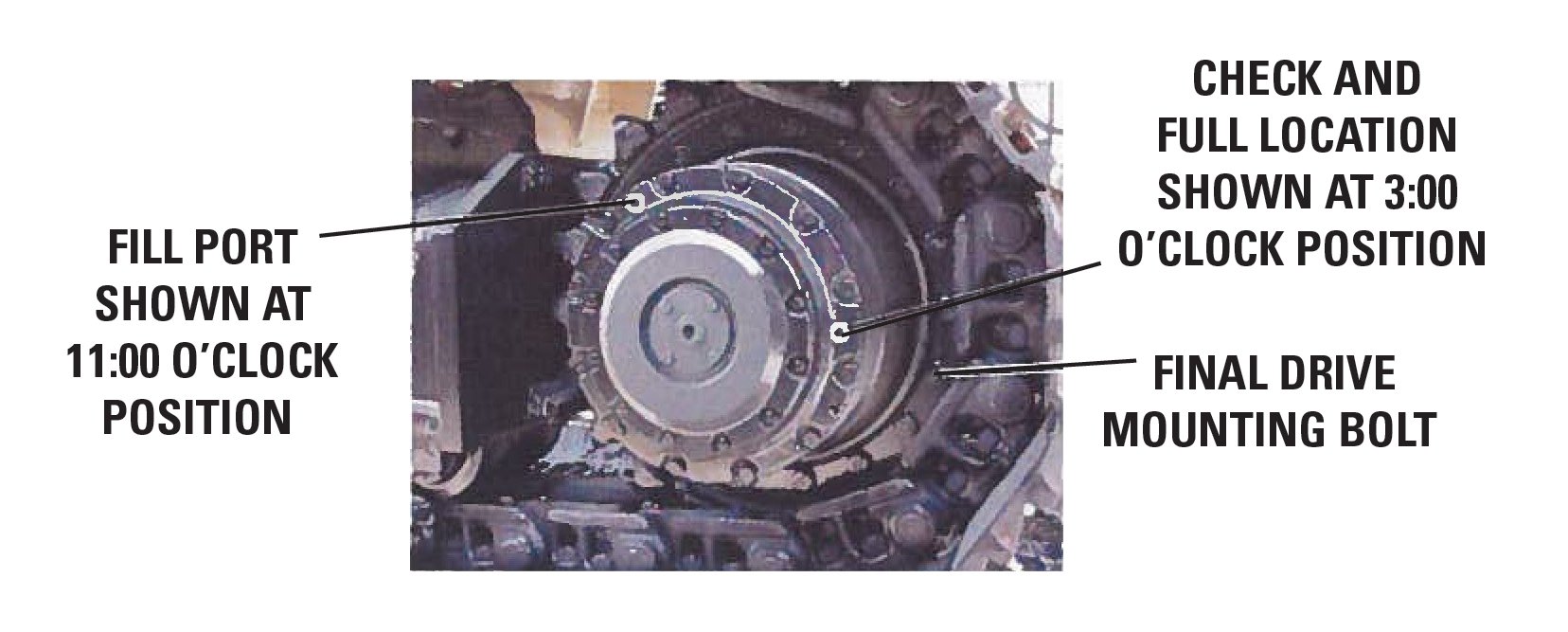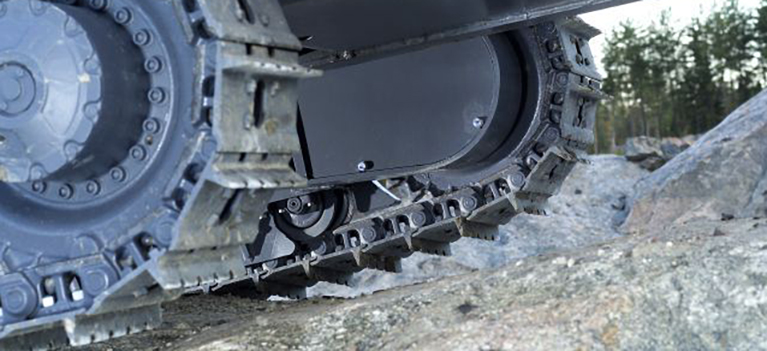It’s tempting fate to avoid daily maintenance checks on tracks and track gear boxes of rigs in your fleet.
Depending on the type of failure, it could take anywhere from four to eight hours to fix a broken track and up to two days to remedy a final drive failure – and that’s if the parts are handy. Even worse, ignoring damage to a track gearbox can run you anywhere from $10,000 to $20,000, not to mention associated costs and profit loss for labor and downtime.
The typical crawler rig’s pre-shift inspection includes track and track gearbox checks.
Check track tension:
Monitor track sag. A track that is too tight increases wear on both the front idle wheel and the sprockets of the final driver. If it’s too loose, the track could fall off, damaging the lower rollers and bushings.
Adjust track tension to the measurements prescribed in the manual. This usually involves gauging the distance between two reference points.
Investigate any unusual noises such as grinding and popping. Be alert to any high whining noise, which could indicate insufficient oil.

Torque bolts/nuts:
Use a common torque wrench to set bolt/nut tension. The correct bolt torque is generally 420 ft-lb (+/- 50 ft-lb) but always check the manufacturer’s recommendations. This secures them as tightly as possible without the threat of having them break under normal operating stresses. Track pads can fall off or break the track chain if the nuts are too loose. Final drives can become loose and leak oil, leading to environmental issues and, ultimately, partial seizure.

Maintain oil levels:
Keep oil levels to the owner’s manual specifications to prevent damage and to extend useful life. Service the oil on schedule. That’s most often given as every 250 hours or immediately upon discovering any leak.
These quick and easy habits should keep your tracks running smoothly and carry your rig to high production.
About the author
Mike Wentworth joined Atlas Copco in 1994 as a Service Technician for the Southeast region and then he was consequently promoted to Service Manager for the Northeast region, Product Support Specialist for Surface Drilling Equipment, and a branch manager for one of Epiroc Northeast locations. Since 2011, Mike has been in the role of Product Manager, where he supports field sales personnel and works directly with our factories on product improvement and development. Mike is a retired member of the U.S. Air Force, having served on active duty from 1981 to 1988 and in the Air Force Reserve from 1988 to 2004.


